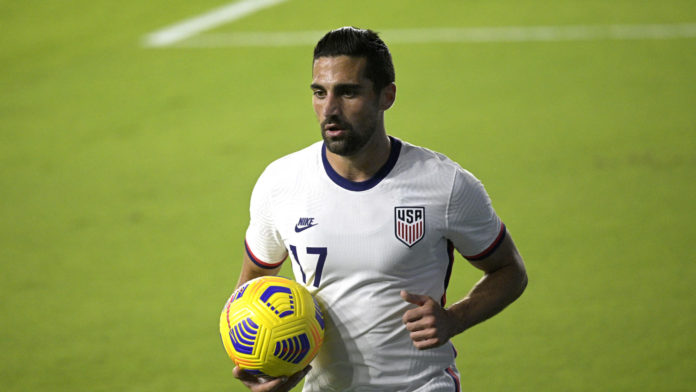National Review
Will MLB’s Decision to Move the All-Star Game from Atlanta Hurt Democrats in 2022?
If you look at national polls, you’d get the impression that the controversy over Major League Baseball’s decision to pull the All-Star Game out of Atlanta in protest of Georgia’s new voting law doesn’t have much salience as a political issue: A new YouGov poll finds that 40 percent of Americans support MLB’s decision, 33 percent oppose it, and 27 percent are undecided. But national polls probably create the wrong impression. This is first and foremost a story about Georgia, which gave Democrats control of the Senate in January and was pivotal in helping put Joe Biden over the top in November’s presidential election. And prominent Democrats are clearly worried that MLB’s decision will hurt them in Georgia going forward. On March 31, two days before MLB announced its decision to move the All-Star Game, President Biden told ESPN that he’d support such a response to the voting law. But this week, Biden and his team have tried to rewrite history, pretending that he never made those remarks. On Monday, White House Press Secretary Jen Psaki said that Biden “was not dictating what Major League Baseball should do, that they should — dictating they should move the All-Star game.” Psaki added that Biden merely “supports them being able to make the decision.” But this was revisionism. On March 31, during the ESPN interview, Biden was asked: “What do you think about the possibility that baseball decides to move their All-Star Game out of Atlanta because of this political issue?” “I think today’s professional athletes are acting incredibly responsibly. I would strongly support them doing that,” he replied, before calling the voting law “Jim Crow on steroids.” The New York Times headline the next day read: “Biden Says He Would Support Moving All-Star Game Over Georgia Voting Law.” If Biden’s comments had been garbled or misinterpreted, one would think the White House press secretary would have immediately contacted the paper of record rather than waiting four days to offer a clarification. Before MLB made its decision, some prominent Georgia Democrats tried to make clear they wouldn’t support moving the All-Star Game, which could cost the state $100 million in economic activity, according to one tourism official’s estimate. “I absolutely oppose and reject any notion of boycotting Georgia,” Democratic senator Jon Ossoff said in a statement on April 1. “Georgia welcomes business, investment, jobs, opportunity, and events. In fact, economic growth is driving much of the political progress we have seen here.” But unlike Ossoff, the state’s other Democratic senator, Raphael Warnock, publicly kept quiet as MLB deliberated, only commenting after the decision had been announced. “The decision by MLB is a result of politicians silencing Georgians to stay in power. While I hope that athletes & others will protest this unjust law by coming to Georgia, I respect the players’ decision,” Warnock wrote on Twitter. “I’ll keep fighting as hard as I can for federal voting rights legislation.” The National Republican Senatorial Committee immediately criticized Warnock’s comment that he “respects” MLB’s decision. Unlike Ossoff, Warnock has to face the voters again in 2022, after winning the January special election to fill the final two years of retiring senator Johnny Isakson’s term January. His reticence to take a stand before the game was moved and his wishy-washy comment after the fact stand in contrast to the rhetoric of Ossoff and Stacey Abrams, the 2018 Democratic gubernatorial nominee, who is likely to seek a rematch against GOP governor Brian Kemp in 2022. Abrams published a USA Today op-ed on March 31 opposing boycotts of Georgia, and reportedly delivered the same message to league officials in private: I’m told that @staceyabrams spoke to an @MLB senior adviser and “strongly” urged the league to keep the All-Star game in Atlanta before the decision to yank the event. She also argued against a boycott before MLB’s move in a @USATODAY op-ed and @AJC interview last week. #gapol — Greg Bluestein (@bluestein) April 7, 2021 Biden himself cautioned other corporations this week that if they “move out of Georgia, the people who need the help the most — the people who are making hourly wages — sometimes get hurt the most,” singing a markedly different tune than he had in the ESPN interview. Perhaps the economic sanctions of Georgia will stop with Major League Baseball, and that will limit the political fallout. But in a state that featured incredibly close elections in 2018 and 2020, every vote matters, and the behavior of Democrats this week reveals that they’re worried about taking the blame for big businesses’ decisions to punish the state.








